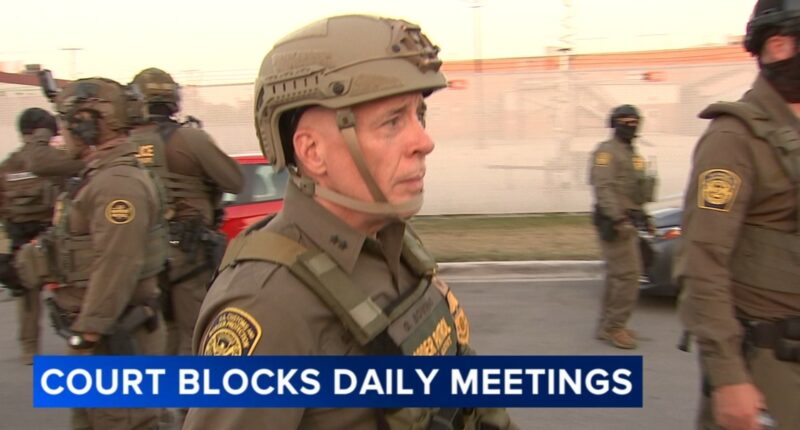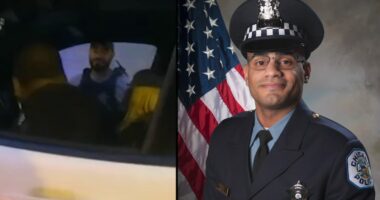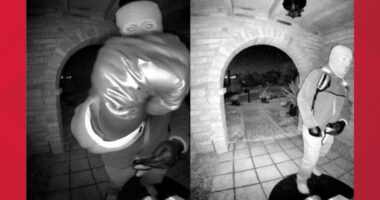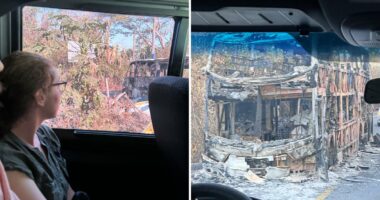Share this @internewscast.com
An appellate court sided with the Trump administration on Friday, halting a judge’s efforts to receive daily briefings from a Border Patrol official regarding the government’s intensified immigration enforcement in the Chicago vicinity.
The court concluded that U.S. District Judge Sara Ellis’s demand for updates placed her in a role more akin to an investigator rather than an impartial judge, effectively overstepping her authority by supervising Greg Bovino, which breaches the principle of separation of powers.
ABC7 Chicago is now streaming 24/7. Click here to watch
Judge Ellis, prompted by concerns over reports of excessive force and tear gas used against demonstrators, had sought daily communications from Bovino starting Wednesday. However, the 7th U.S. Circuit Court of Appeals intervened on that day, initially suspending the order and then solidifying the suspension on Friday.
In another legal development on Friday, Illinois advocates filed a lawsuit against federal officials, criticizing the conditions at a Chicago-area immigration center as “inhumane.”
The lawsuit, filed by lawyers from the American Civil Liberties Union of Illinois and the MacArthur Justice Center, alleges that U.S. Immigration and Customs Enforcement (ICE) officers have denied detainees at the Broadview facility private communications with their lawyers. They have also reportedly barred entry to members of Congress, religious leaders, and journalists, effectively creating a “black box” environment where authorities can act without accountability.
Furthermore, the lawsuit accuses ICE agents of pressuring detainees into signing documents they do not comprehend, which inadvertently strips them of their rights and leads to their deportation.
Alexa Van Brunt, director of the MacArthur Justice Center’s Illinois office and lead attorney for the lawsuit, said community members are “being kidnapped off the streets, packed in hold cells, denied food, medical care, and basic necessities, and forced to sign away their legal rights.”
“Everyone, no matter their legal status, has the right to access counsel and to not be subject to horrific and inhumane conditions,” she said.
Homeland Security Department Assistant Secretary Tricia McLaughlin denied the assertions and said such allegations have contributed to an increase in death threats against immigration officers. She said people are held only briefly before being transferred to detention facilities.
“Any claims there are subprime conditions at the Broadview ICE facility are false. All detainees are provided with 3 meals a day, water, and have access to phones to communicate with their family members and lawyers,” the statement said. “No one is denied access to proper medical care. There is a privacy wall around the toilet for detainees.”
Attorneys accuse ICE, DHS and U.S. Customs and Border Protection of violating detainees’ constitutional rights to due process and access to a lawyer and have asked the court to force the agencies to improve the facility’s conditions.
The 76-page lawsuit paints a bleak picture of the facility, which attorneys say is “extremely cramped” and “smells strongly of feces, urine, and body odor,” while insects were found in the sinks and clogged toilets led to urine on the floor. One man described people lying on top of each other and in the bathroom, unable to find space to sleep.
“They treated us like animals, or worse than animals, because no one treats their pets like that,” one woman said in the lawsuit.
Several people said they were detained at the processing center for durations ranging from a couple days to three weeks.
Advocates have for months raised concerns about conditions at the facility, which has drawn scrutiny from members of Congress, political candidates and activist groups. Lawyers and relatives of people held there have called it a de facto detention center, saying up to 200 people have been held at a time without access to legal counsel.
The Broadview center has also drawn demonstrations, which have led to the arrests of numerous protesters. The protests are at the center of a separate lawsuit from a coalition of news outlets and protesters who claim federal agents violated their First Amendment rights by repeatedly using tear gas and other weapons on them.
Ellis sided with the coalition earlier this month, requiring federal agents in the Chicago area to wear badges and banning them from using certain riot control techniques against peaceful protesters and journalists. Later, Ellis also required body cameras for agents who have them after raising concerns about her initial order not being followed.
____
This story has been updated to remove incorrect references to specific constitutional protections.
.

















